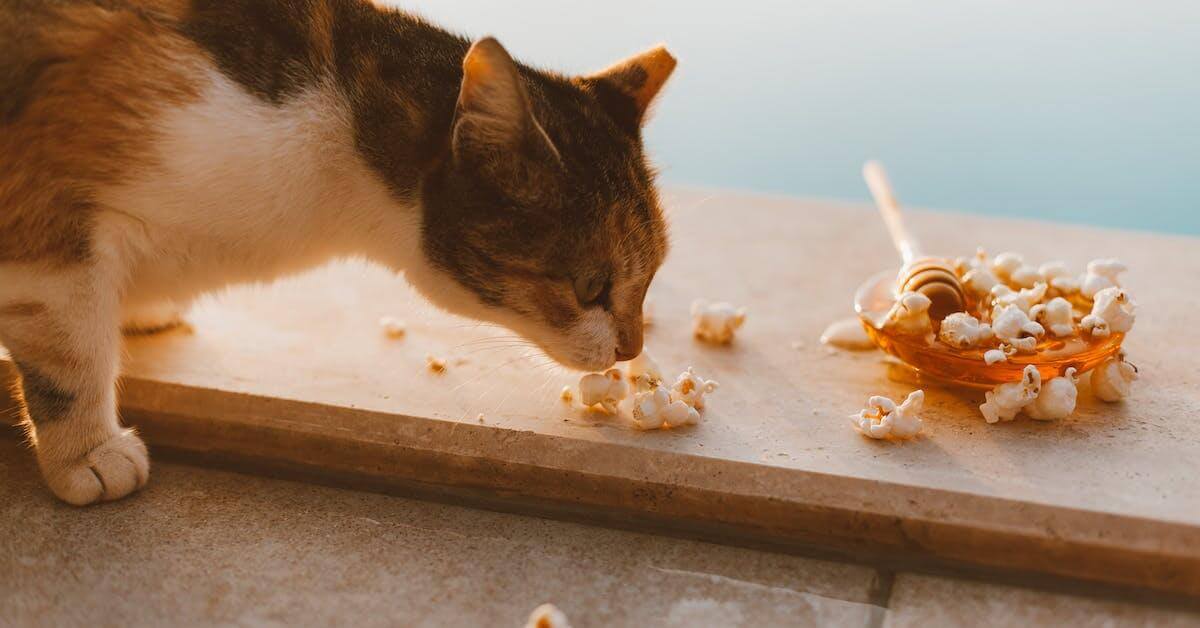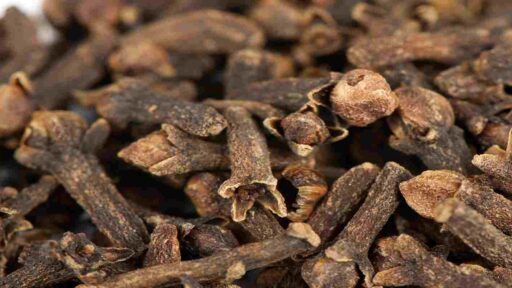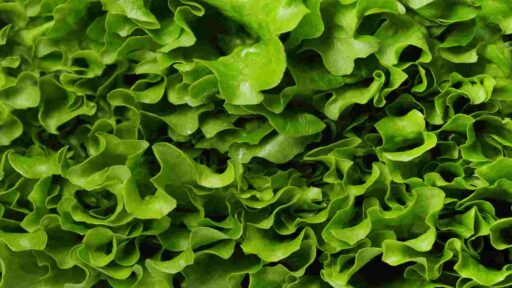Popcorn, with its irresistible aroma and satisfying crunch, has become a go-to snack for many. But what about our feline friends? Can cats eat popcorn safely? Let’s delve into the world of feline nutrition and snacking habits to find out.
Can Cats Eat Popcorn?
The short answer is yes but with caution. While popcorn itself is not toxic to cats, there are essential factors to consider before treating your kitty to this popular snack.
Nutritional Value of Popcorn

Before deciding to share your popcorn, it’s essential to understand its nutritional composition. Popcorn is a whole grain and a good source of fiber. However, its nutritional profile may not align perfectly with a cat’s dietary needs.
In comparison to their carnivorous nature, cats require a diet rich in protein and specific nutrients. Popcorn, being primarily a carbohydrate, should be a minimal part of their culinary adventures.
Potential Dangers and Risks
Despite being generally safe, there are potential hazards associated with feeding popcorn to cats. The risk of choking and digestive issues, such as blockages, should not be overlooked. This calls for responsible pet ownership and a keen understanding of your cat’s eating habits.
Can cats eat popcorn ? Moderation is Key
As with any treat, moderation is crucial. While occasional popcorn indulgence is unlikely to harm your cat, making it a regular occurrence may lead to unwanted health issues. Portion control is the key to ensuring that your cat enjoys a variety of treats without compromising its well-being.
Alternative Snack Options for Cats
If you’re hesitant about sharing your popcorn, fear not. There are plenty of cat-friendly treats and homemade alternatives that cater to their taste buds and nutritional needs. From fish-flavored snacks to DIY catnip-infused delights, the options are diverse.
Cats and Their Dietary Needs
Understanding your cat’s dietary requirements is fundamental to responsible pet ownership. Cats need a balanced diet that includes essential nutrients such as protein, fats, and vitamins. While popcorn can be an occasional treat, it should not replace the nutrition they get from their regular meals.
Can Cats Eat Popcorn? Cat’s Reactions
Every cat is unique, and their reactions to new foods can vary. Keep a close eye on your feline friend after introducing popcorn. Look for signs of allergies or discomfort, and if any issues arise, consult your veterinarian promptly.
Tips for Introducing Popcorn to Cats
If you’re keen on sharing your popcorn, take a gradual approach. Mix small amounts with their regular treats or try adding cat-friendly flavors to make it more appealing. This way, you can monitor their response and adjust accordingly.
Popular Myths About Cats and Popcorn
Dispelling common misconceptions is essential for informed pet ownership. One prevalent myth is that all cats love popcorn. In reality, individual preferences vary, and some cats may not show interest in this particular treat.
Expert Opinions on Cats and Popcorn
Veterinarians emphasize the importance of treating cats with caution when it comes to unconventional snacks. While popcorn may not pose an immediate threat, it’s crucial to prioritize their overall health and provide treats that align with their nutritional needs.
Homemade Cat Treat Recipes
For pet owners who enjoy getting creative in the kitchen, there are numerous DIY cat treat recipes available. These treats ensure that your cat gets the flavors they enjoy while maintaining a healthy balance in their diet.
Can Cats Develop a Taste for Popcorn?
Cats are creatures of habit, and their taste preferences can be shaped through training and conditioning. If you want to introduce popcorn to your cat, do so gradually and observe their response. Positive reinforcement can help establish healthy snacking habits.
While cats can eat popcorn, responsible pet ownership entails understanding the nuances of feline nutrition. Treats should complement their diet, not replace it. As a cat owner, it’s your duty to balance indulgence with care, ensuring your furry friend leads a healthy and happy life.
Read about other cat’s food
FAQs About Cats and Popcorn
Is popcorn safe for cats?
Plain, air-popped popcorn in moderation is generally considered safe for cats. However, there are some important considerations to keep in mind:
- No Additives: Make sure the popcorn is plain and free from butter, salt, or any additional seasonings. Cats are sensitive to high-fat content and certain additives.
- Small Portions: While plain popcorn is not toxic, it should only be given as an occasional treat. Cats have specific dietary requirements, and too much popcorn can lead to an imbalanced diet.
- Avoid Microwave Popcorn Bags: Avoid giving cats popcorn from microwave popcorn bags, as these often contain added oils, butter, and seasonings that may not be suitable for feline consumption.
- Monitor for Allergies or Upset Stomach: Introduce popcorn gradually and monitor your cat for any signs of allergies or digestive upset. If you notice any adverse reactions, discontinue feeding popcorn.
Always consult with your veterinarian before introducing new foods to your cat’s diet, especially if they have any underlying health conditions or dietary restrictions.
Can cats develop allergies to popcorn?
While it’s not common, cats can potentially develop allergies to various foods, including popcorn. Allergies in cats may manifest as skin issues, digestive problems, or respiratory symptoms. If you notice any unusual reactions or behaviors in your cat after consuming popcorn, such as itching, vomiting, diarrhea, or difficulty breathing, it’s essential to consult with your veterinarian.
It’s worth noting that plain, air-popped popcorn is less likely to cause allergies compared to flavored or buttered popcorn, which may contain ingredients that can be problematic for cats. If you want to offer popcorn to your cat, start with small amounts and observe for any adverse reactions. If your cat shows signs of an allergic response, it’s advisable to avoid giving them popcorn in the future and consult with your veterinarian for guidance.
Are there specific popcorn flavors cats prefer?
Cats, being obligate carnivores, generally don’t have a preference for popcorn or specific flavors. Their taste preferences are primarily geared towards meat. While some cats might show curiosity about the smell or texture of popcorn, it’s not a food that aligns with their natural dietary needs.
If you decide to share a small, plain, air-popped popcorn with your cat as an occasional treat, that’s generally fine. However, it’s important to avoid flavored or seasoned popcorn, as the additives, salt, and other seasonings may not be suitable for feline consumption.
Always be cautious when introducing new foods to your cat’s diet and observe for any signs of allergies or digestive upset. If you have any concerns about your cat’s diet or health, it’s best to consult with your veterinarian for personalized advice.
How often can I give popcorn to my cat?
While plain, air-popped popcorn is not toxic to cats, it should be given in moderation and as an occasional treat. Cats have specific dietary requirements, and their primary nutrition should come from well-balanced cat food. Too much of any treat, including popcorn, can lead to an imbalanced diet.
As a general guideline, treats should make up no more than 10% of a cat’s daily caloric intake. It’s important to consider the cat’s overall diet and health when offering treats. If you decide to give your cat popcorn, ensure it’s plain and free from butter, salt, or any additional seasonings.
Always monitor your cat for any signs of allergies, digestive upset, or adverse reactions. If you have concerns about your cat’s diet or health, it’s advisable to consult with your veterinarian for personalized guidance.
What should I do if my cat chokes on popcorn?
If you suspect that your cat is choking on popcorn, it’s crucial to act quickly. Here are some steps to follow:
- Remain Calm: Stay calm to better assist your cat. A calm demeanor will help you think more clearly and handle the situation effectively.
- Assess the Situation: Carefully observe your cat. If your cat is still breathing and is not in immediate distress, it might be best to avoid intervening to prevent accidental injury.
- Do Not Use Your Fingers: Avoid putting your fingers into your cat’s mouth unless you can clearly see and reach the obstruction. You could inadvertently push the object further down the throat.
- If Conscious, Use Gravity: If your cat is conscious and struggling but still breathing, you can try to help by positioning them with their head lower than their body. This may allow gravity to assist in dislodging the object.
- Seek Veterinary Assistance: If your cat is in severe distress, or unconscious, or if your attempts to help are unsuccessful, seek immediate veterinary assistance. Call your veterinarian or an emergency animal hospital for guidance.
Preventing situations where your cat might choke is crucial. Always supervise your cat when they are eating or playing with small objects. Additionally, avoid giving them foods that could pose a choking hazard, such as large pieces of uncut meat or hard treats. If you have any concerns about your cat’s health or if they experience repeated choking incidents, consult with your veterinarian for advice.
Can cats eat popcorn with olive oil?
While plain, air-popped popcorn is generally safe for cats in moderation, it’s best to avoid adding any toppings, including olive oil. Cats have specific dietary requirements, and their digestive systems are not adapted to handle certain additives found in human food.
Olive oil, while not toxic to cats in small amounts, is high in fat. Cats are obligate carnivores, meaning their diet should primarily consist of animal-based proteins. High-fat foods may lead to digestive upset or contribute to obesity in cats.
If you want to share a small amount of plain, air-popped popcorn with your cat, that is generally safe. However, it’s crucial to avoid toppings like butter, salt, or oil, as they can be harmful. Always monitor your cat for any signs of allergies or digestive issues after introducing new foods, and consult with your veterinarian if you have specific concerns about your cat’s diet.




